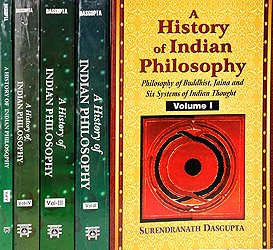A History of Indian Philosophy Volume 3
by Surendranath Dasgupta | 1940 | 232,512 words | ISBN-13: 9788120804081
Vol. III contains an elaborate account of the principal dualistic and pluralistic systems such as the philosophy of the Pancaratra. Bhaskara, Yamuna, Ramanuja, Nimbarka, Vijnanabhiksu and philosophical speculations of some of the selected Puranas. This is the third of five volumes, that were originally published between 1922 and 1955. In these vol...
Yāmuna (Introduction)
Though in later days Bodhāyana is regarded as the founder of the Vaiṣṇava systems, yet, as his commentary on the Brahma-sūtras is not now available, we may look upon Yāmuna as being the earliest of the latter-day Vaiṣṇava philosophers. We hear that many other people, such as Taṅka, Dramida and Bharuchi, wrote in accordance with the teachings contained in the commentary of Bodhāyana, endeavouring to refute the views of other systems of thought. Dramida wrote a Bhāṣya which was elaborated by Śrīvatsāṅka Miśra and is frequently referred to by Yāmuna.
The sage Vakulā-bharaṇa, called Śathakopācārya, also wrote an elaborate treatise in the Tamil language on the bhakti creed, but this also is hardly available now. Thus the history of modern Vaiṣṇavism should, for all practical purposes, begin with Yāmunācārya, who flourished during the latter part of the tenth and the earlier part of the eleventh century. Yāmunācārya was said to be the preceptor of Mahāpūrṇa from whom the great Rāmānuja had his initiation.
So far as I am aware, Yāmuna wrote four books, namely,
Of these only the first two have been printed.
